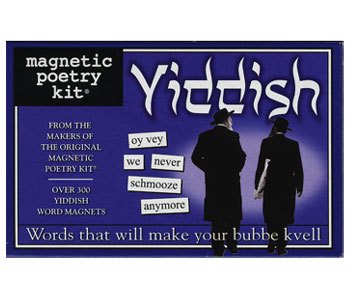 By Sarah Breger
By Sarah Breger
A new study released last week finds that outside of New York, Jews are more likely than non-Jews to have elements of a New York accent.
“The Survey of American Jewish Language and Identity” reports the results of a survey of 25,179 American Jews and 4,874 American Gentiles. There are many intriguing finds in the study, including that older Jews are more likely to know Yiddish words while younger Jews are more likely to know Hebrew words.
Interestingly, “Jewish terms” are being used for religious rituals, replacing their American translations, the survey found. Jews of all religious stripes are increasingly using the term “shul” instead of synagogue” and “leyn” instead of “read Torah.” Although the authors of the survey are not sure why…
An example is a baby boomer who grew up in California attending Conservative services regularly and now rarely attends services. She wrote in the comments section of the survey: “When I was growing up, I called it Temple. When my children went to a Day School, I called it synagogue. I now call it shul. I am not sure why.” The reason, we think, is that “shul ” is gradually replacing “synagogue” and “temple” in Jewish American English. Linguistic features have spread past religious circles to people who have contact with them and beyond.
Unsurprisingly the more Jewish friends a non-Jew has, the more Yiddish and Hebrew he knows. And non-Jews who have lived in New York know many more Jewish terms than their fellow Gentiles. Maybe it can be chalked up to the proliferation of bagel shops?

One thought on “Study Confirms Suspicion that Jews and New Yorkers are Actually Interchangeable”
…and this surprises you?